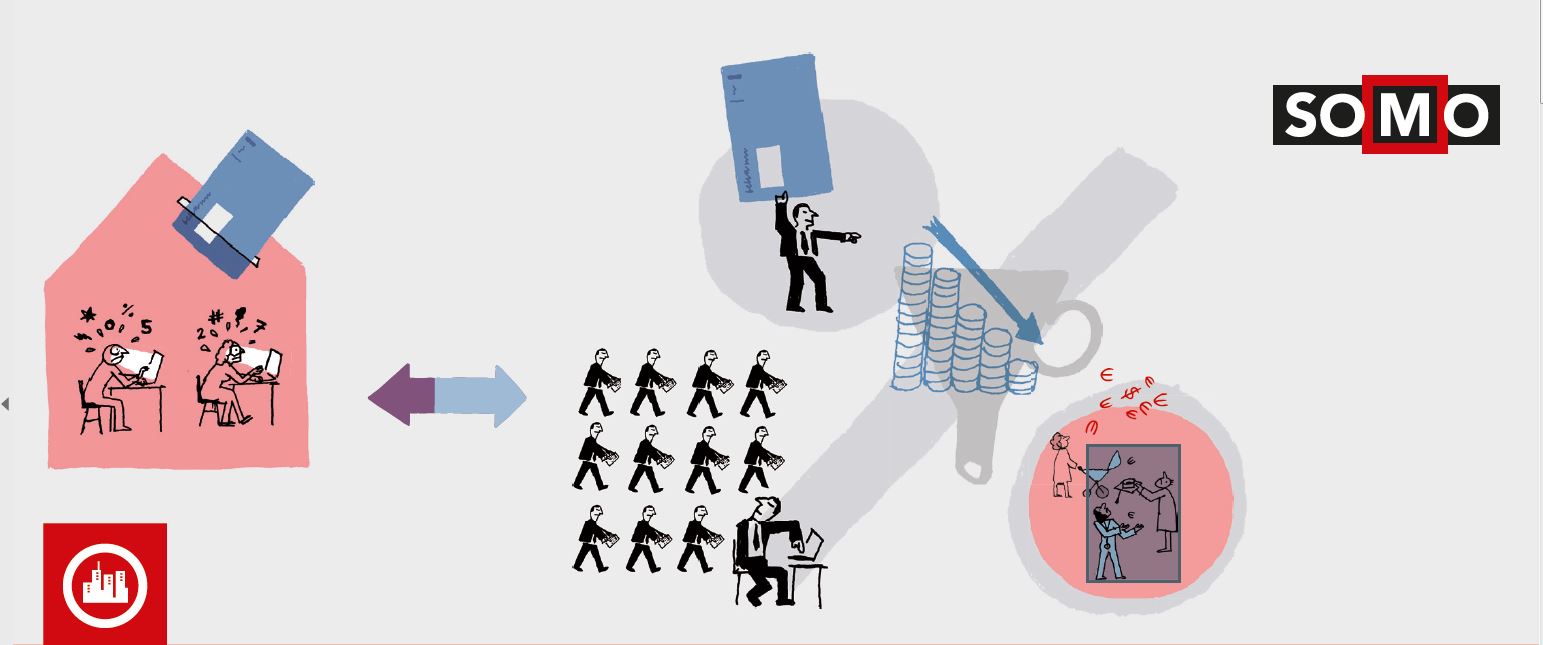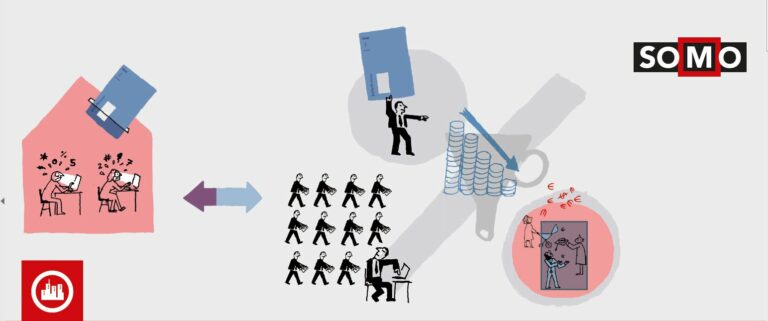
Big companies, Low rates
Commissioned by FNV, SOMO examined the average, effective tax rate for a group of more than 150 large Dutch companies over a period of ten years (2005-2014). In recent years, tax avoidance by foreign companies, and the role of Dutch tax policy in that, has frequently featured prominent in the media. Currently it’s a hot topic because of the Panama Papers.
The report “Grote Bedrijven, Kleine Lasten” focuses on a group of Dutch companies and the degree to which they have succeeded in reducing their effective tax rates. This leads to a loss in tax revenues for governments of € 3 billion per year. The paper Big Companies, Low Rates is an English summary of the Dutch report “Grote Bedrijven, Kleine Lasten”.
The statutory tax rate for corporate income – the legally-prescribed tax rate that is used for taxation of company profits – decreased in the last ten years from 31.5 per cent in 2005 to 25 per cent in 2014. The effective tax rate shows to what extent companies are able to effectively lower this rate through, amongst other things, tax avoidance.
A loss in tax revenues
In the report 93 publically listed companies and 58 non-listed companies were researched. The average effective tax rate of those listed companies amounted to 21.5 per cent in the period 2005-2014. The company profits of the non-listed companies – only large family-owned companies and cooperatives were included in this research – were effectively taxed at a rate of 17,9 per cent. This is lower than the average statutory rate over this same period, which leads to a loss in tax revenues for governments of € 3 billion per year.
Indicators for avoidance strategies
The research also identifies indicators for the use of avoidance strategies. For example, it seems that a number of large companies such as Randstad and Unilever use the so-called Belgium route (where companies use the notional interest deduction in Belgium by locating a large part of its equity there). Misuse of intra-group financing – group entities within a corporate group which finance each other – is a well-known avoidance strategy. This research shows that parent companies of, amongst others, TomTom and Telegraaf Media Groep, are to a large extent financed with loans from subsidiaries. Further research would be necessary to show whether and to what extent avoidance takes place in these instances.
Recommendations are available in the Dutch report Grote Bedrijven, Kleine Lasten
Do you need more information?
-

Vincent Kiezebrink
Researcher
Related content
-
Research Methodology Published on:
 Indra RömgensPosted in category:Publication
Indra RömgensPosted in category:Publication Indra Römgens
Indra Römgens
-
Big Companies, Low Rates Published on:
 Indra RömgensPosted in category:Publication
Indra RömgensPosted in category:Publication Indra Römgens
Indra Römgens
-
The treaty trap: The miners Published on:
 Vincent KiezebrinkPosted in category:Publication
Vincent KiezebrinkPosted in category:Publication Vincent Kiezebrink
Vincent Kiezebrink

